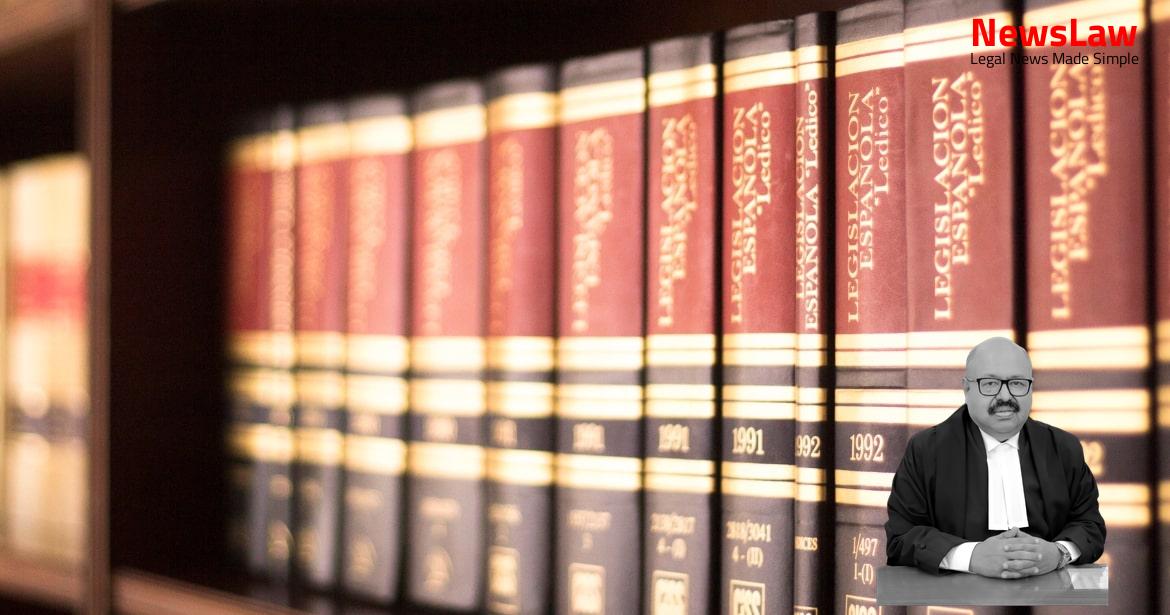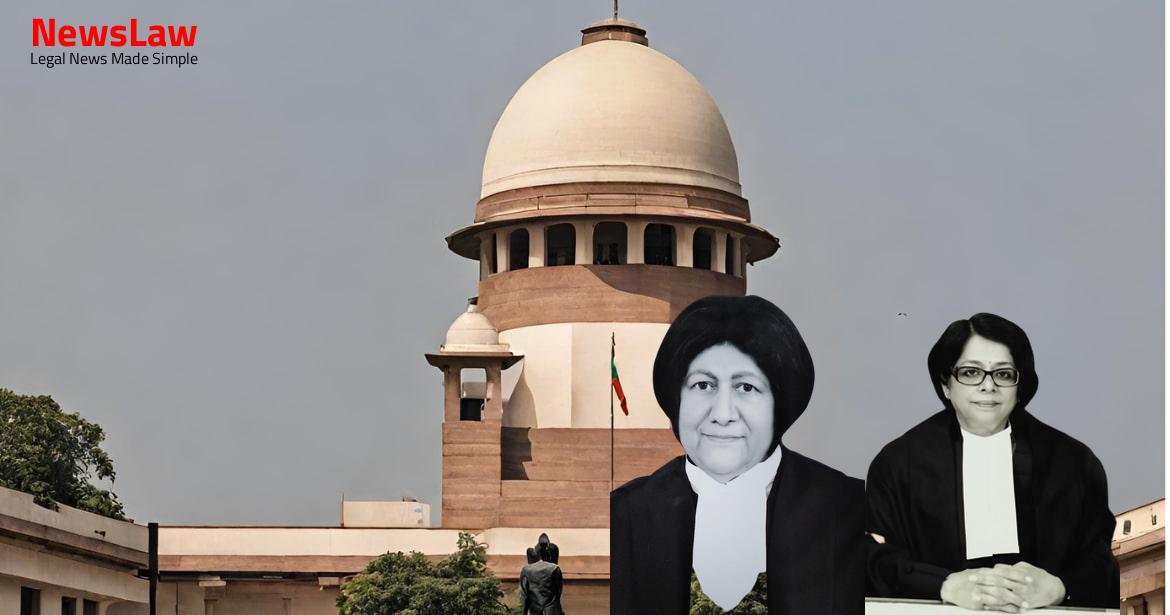The legal analysis of limitation and condonation of delay in filing appeals is crucial for ensuring timely and fair resolution of disputes. The recent judgment sheds light on the importance of adhering to prescribed time limits while also considering genuine reasons for delays. The Court’s in-depth examination of the applicability of the Limitation Act and the Commercial Courts Act provides valuable insights into the complexities of legal procedures. Let’s explore the nuances of time constraints and exceptions in the realm of legal proceedings.
Facts
- The Division Bench judgment dated 10-4-2013 in the case of Union of India v. Varindera Constructions Ltd. was found to have dismissed the appeal filed by the Union of India due to a delay of 142 days in filing the appeal and 103 days in refiling the appeal.
Also Read: Interpretation of Section 43B: Debentures vs. Interest Payment
Issue
- The vexed question to be addressed is whether the application of section 5 of the Limitation Act is excluded by the scheme of the Commercial Courts Act.
- Dr. George has argued that the application of section 5 of the Limitation Act is excluded by the scheme of the Commercial Courts Act.
Also Read: Judicial Scrutiny of Arbitrary Taxation Statutes
Arguments
- Shri Deshmukh relied on section 12A of the Commercial Courts Act and argued that different periods of limitation are provided in the Arbitration Act, with the limitation period for filing applications under the Arbitration Act being governed by Article 137 of the Limitation Act, which allows for a three-year limitation period.
- The limitation period for filing appeals under the Commercial Courts Act is 60 days and not 90 days as mentioned in section 34(3) of the Arbitration Act.
- Shri Navare argued that the whole object of speedy disposal of appeals in the Commercial Courts Act would be defeated if long periods of delay beyond 30 days are condoned, as appeals are required to be decided within six months.
- He argued for the uniform application of a three-year limitation period for appeals under section 37 of the Arbitration Act, citing the need for consistency.
- The Division Bench emphasized that appeals should be filed within the maximum period of 120 days, including the grace period of 30 days, to maintain the statutory purpose of arbitration proceedings being decided promptly.
- The Division Bench rejected petitions with delays beyond 120 days, upholding the principle of expeditious arbitration proceedings.
- The Division Bench also mentioned that the original objective of arbitration proceedings being resolved swiftly was reinforced by the 2015 Amendment to the Arbitration and Conciliation Act.
- Shri Deshmukh argued that different provisions of the Arbitration Act provide for appeals from various orders, each with its rationale and specific limitation period, noting the distinction between appeals under different sections of the Act.
- Shri Deshmukh referenced a judgment to support the condonation of delay beyond the 120-day limitation period for appeals under specific sections of the Arbitration Act.
- He further argued against a hard and fast rule for limitation periods, drawing attention to the discretion available to judges when interpreting statutes.
- Shri Deshmukh cited judgments and laws to support his arguments regarding the applicability of the Limitation Act in arbitration proceedings and the importance of speedy disposal in the Arbitration Act.
- The respondent in the Civil Appeal argued that section 13 of the Commercial Courts Act excludes the application of section 5 of the Limitation Act because of the objective of speedy disposal.
- The respondent relied on judgments in Kandla Export Corpn, CCE & Customs v. Hongo India (P) Ltd., and N.V. International to support the exclusion of section 5 of the Limitation Act.
- The respondent also cited other judgments interpreting section 29(2) of the Limitation Act, stating that the scheme of a particular statute can expressly exclude section 5.
- It was argued that sufficient cause had not been made out on facts, and the judgment of the High Court of Delhi dated 15.10.2019 should be set aside on this ground as well.
Also Read: Ensuring Transparency in Electoral Processes
Analysis
- The finality is a fundamental principle enshrined under the Arbitration Act and a definitive time-limit for challenging an award is necessary for ensuring finality.
- The purpose of the Commercial Courts Act is to provide for speedy resolution of disputes involving high amounts of money.
- Courts must weigh in the rights and obligations of both parties even while taking a liberal approach.
- The statute of limitation aims to secure peace in the community, suppress fraud and perjury, and prevent oppression.
- It is essential to demonstrate sufficient cause for delay in approaching the court beyond limitation.
- Judges only declare the law, and it is for the legislatures to make the law.
- The judgment discusses the concept of condonation of delay in filing appeals under the Arbitration Act and the Commercial Courts Act.
- It emphasizes the importance of considering all relevant facts and circumstances when deciding on condonation of delay.
- The judgment highlights the need for parties, especially government bodies, to provide reasonable explanations for delays and demonstrate bona fide efforts.
- It mentions the significance of adhering to the limitations set by the law and avoiding unnecessary delays in judicial processes.
- The discussion underscores the application of Section 5 of the Limitation Act and the importance of respecting legislative intent in matters of limitation and condonation of delay.
- The Court ordered that an arbitral award be set aside, and the period between the commencement of the arbitration and the date of the Court’s order is excluded from the computation of time under the Limitation Act, 1963.
- Section 5 of the Arbitration Act allows for the extension of the prescribed period if there is sufficient cause for not filing the appeal or application within the specified time.
- Section 29(2) states that where a special or local law prescribes a different period of limitation, the provisions of Section 3 shall apply as if that period were prescribed by the Schedule.
- The Arbitration Act aims to provide a fair, efficient, and speedy arbitral procedure, minimizing the role of courts in the process.
- The Commercial Courts Act defines ‘specified value’ in relation to a commercial dispute and sets out provisions for appeals and jurisdiction in commercial disputes.
- Various sections in the Commercial Courts Act outline the procedure for appeals, limitations, and the overriding effect of the Act on other laws.
- Provisions for fast track procedures, appointment of arbitrators, challenges to arbitrators, and time limits for arbitral awards are detailed in the Arbitration Act.
- The Act allows for correction and interpretation of awards, setting aside of arbitral awards, and appealable orders from arbitral tribunals.
- The explanation given for the delay in filing the appeal was not sufficient
- The delay was not condoned
- The appeal was allowed and delay condonation set aside
Decision
- The impugned judgment of the High Court of Delhi dated 15.10.2019 cannot be faulted.
- The appeal is consequently dismissed.
- After taking opinion for appeal and approval of concerned authorities, the officer-in-charge was appointed on 23/07/2019.
- In the Civil Appeal arising out of SLP (C) Diary No 18079 of 2020, there is a huge delay of 227 days in filing the appeal, and a 200-day delay in refiling.
Case Title: GOVERNMENT OF MAHARASHTRA, (WATER RESOURCES DEPARTMENT) Vs. M/S BORSE BROTHERS ENGINEERS AND CONTRACTORS PVT. LTD. (2021 INSC 194)
Case Number: C.A. No.-000995-000995 / 2021



